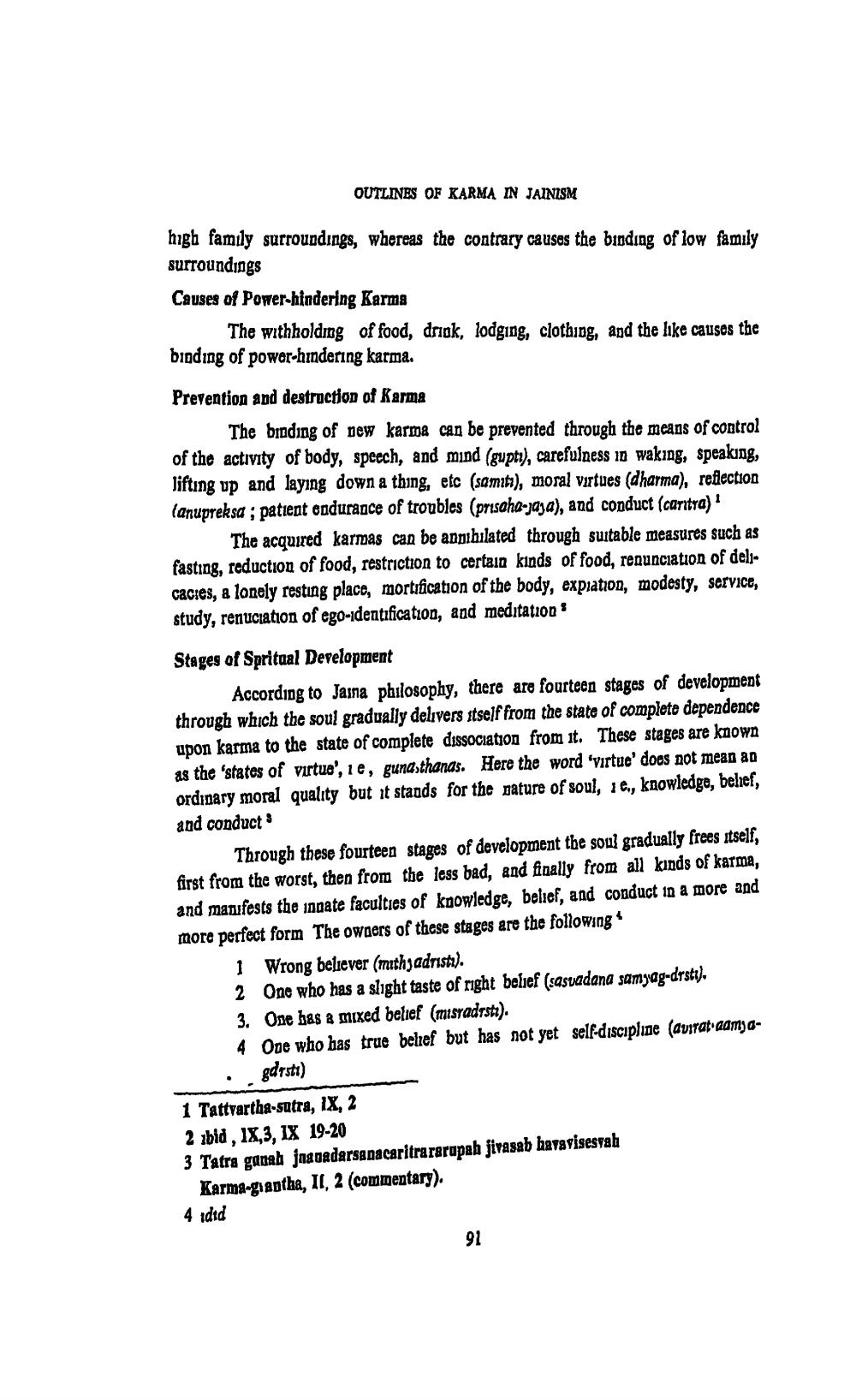________________
OUTLINES OF KARMA IN JAINISM
high family surroundings, whereas the contrary causes the binding of low family surroundings Causes of Power-hindering Karma
The withholding of food, driok, lodging, clothing, and the like causes the binding of power-hindering karma.
Prevention and destruction of Karma
The binding of new karma can be prevented through the means of control of the activity of body, speech, and mind (guptı), carefulness in waking, speaking, lifting up and laying down a thing, etc (samuti), moral virtues (dharma), reflection (anupreksa : patient endurance of troubles (prisaha-jaja), and conduct (cartra)'
The acquired karmas can be annihilated through suitable measures such as fasting, reduction of food, restriction to certain kinds of food, renunciation of delje cacies, a lonely resting place, mortification of the body, expiation, modesty, service, study, renuciation of ego-identification, and meditation
Stages of Spritual Development
According to Jaina philosophy, there are fourteen stages of development through which the soul gradually delivers itself from the state of complete dependence upon karma to the state of complete dissociation from it. These stages are known as the 'states of virtue', ie, guna thanas. Here the word 'virtue' does not mean an ordinary moral quality but it stands for the pature of soul, ie, knowledge, belief, and conduct
Through these fourteen stages of development the soul gradually frees itself, first from the worst, then from the less bad, and finally from all kinds of karma, and manifests the ingate faculties of knowledge, belief, and conduct in a more and more perfect form The owners of these stages are the following
1 Wrong believer (math, adristz). 2 One who has a slight taste of right belief (sasvadana samyag-drsti). 3. One has a mixed belief (misradrstu).
4 One who has true belief but has not yet self-discipline (aviratamya
• gdtsti) 1 Tattvartha-sutra, IX, 2 2 ibid , 18,3, IX 19-20 3 Tatra ganah jaapadarsanacaritrargrupah jivasab havayisesyah
Karma-grantha, II, 2 (commentary). 4 dtd




